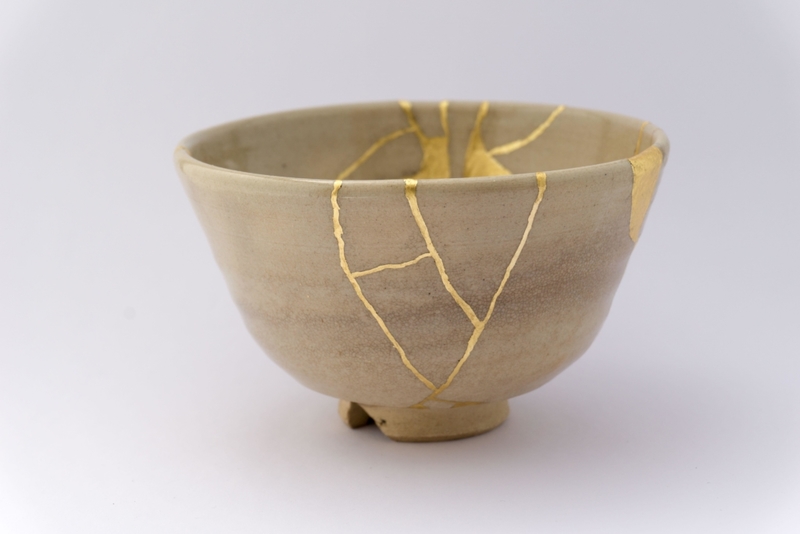
Wabi-Sabi: Accept Your Imperfections
In the past decade, we have turned to other cultures to try and learn new viewpoints on life. By now, many of us have already heard of Hygge, a Danish word used to describe a type of coziness that one can experience by adopting a certain lifestyle. We have also heard of Lagom, a Swedish word that means “just the right amount”, which encourages us to make sure we do everything in moderation. Many times, foreign traditions can teach us about what’s missing in our own. If are looking for a fresh perspective, something to help get out of a rut and rethink your attitude towards the world and yourself, Wabi-Sabi might be the right thing for you.

Alamy Stock Photo
Wabi-Sabi is a Japanese concept that promotes acceptance of life’s imperfection as well as your own. Wabi is a word related to rustic simplicity and silence, while Sabi means the beauty the can be found in old, worn-out objects. The idea behind this life philosophy is to try and find beauty in things that are imperfect or incomplete. This concept comes from Buddhist teaching. Beth Kempton, author of the book “Wabi Sabi: Japanese Wisdom for a Perfectly Imperfect Life” has learned about the concept while vising Japan.

Alamy Stock Photo
So, how can one practice Wabi-Sabi? Firstly, learn to embrace life’s impermanence. Things change all the time, and that’s ok. Learning to let go of ideas we had of what our future might look like can help us feel more at ease with the way our life is going. A good way to practice this is to try and let go of the expectations you have for your day or even your week. This leaves room for things to not go as planned and for us to be ok about it.

Alamy Stock Photo
Secondly, think about trying to abandon the idea that things should be, or can be perfect. This understanding our bodies change and can not be perfect our home, our career — they are all perfectly imperfect. Challenge to try and find the beauty in things that are imperfect. You can start small, by looking at nature or at broken objects. Once you’ve mastered those you can try and apply this idea to your own life.

America’s Wealthiest: A State-by-State Look at the Nation’s Richest People
The United States of America is home to more billionaires than any other country. There are 724, to
Living / 2022-12

Odd Rules the Royals Must Follow
The perks of being a British royal are many, but as it turns out, it’s not always fun and games.
Living / 2022-12

Dazzling Must-See Gowns from 50 Years of the Emmy Awards Part 2
Award shows can be incredibly boring. After all, it’s just a night when people’s names are
Living / 2022-12

Mistakes Everyone Makes with their Refrigerator
Refrigerators are easy, right? Plug them in, open and close, keep things cold, and convince your
Living / 2021-10

Top Hazardous Household Items for Dogs
Every year hundreds, if not thousands, of our beloved pets get poisoned by common items lying
Living / 2021-10

Why Your Dog Is Your Best Friend
Most of us are probably not even aware of when and where the word “dog” came from. It’s said
Living / 2021-09

The Dark Side You Never Knew About The Wizard of Oz
The Wizard of Oz has remained a classic American film since its creation in 1939. The film’s
Living / 2021-09

What Happened to the Cast of Night Court & Behind the Scenes Facts
The NBC show “Night Court” aired from 1984 to 1992. The sitcom was hilarious and quirky, with a
Living / 2021-09

Cars That Will Take You The Extra Mile
Purchasing a good car requires a considerable lump sum of money, and the initial purchase is only
Living / 2021-09

These Gravestones Are Just as Memorable as the Stars Buried Underneath Them
Celebs are watched throughout their whole careers, from their love lives to their scandals; they
Living / 2021-09






















